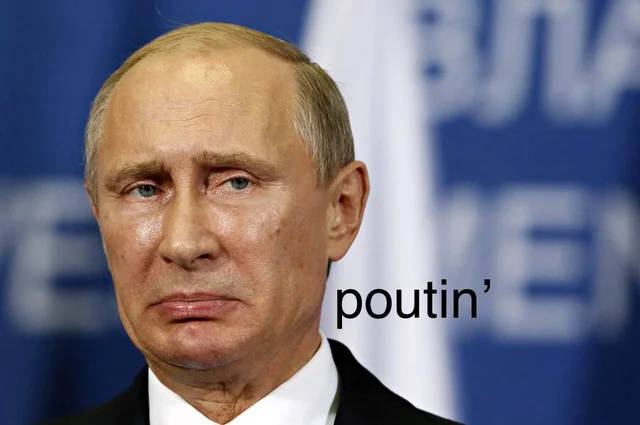[From Unsplash]
Good morning
In Hit Refresh, Satya Nadella, CEO of Microsoft, writes about how a lack of empathy almost cost his job at Microsoft. He writes:
“Looking back to my own interview process decades ago, I remember that after a full day of interviews with various engineering leaders who tested my fortitude and my intellectual chops, I met Richard Tait—an up-and-coming manager who went on to found Cranium games. Richard didn’t give me an engineering problem to solve on the whiteboard or a complex coding scenario to talk through. He didn’t grill me on my prior experiences or educational pedigree. He had one simple question.
“‘Imagine you see a baby laying in the street, and the baby is crying. What do you do?’ he asked.
“‘You call 911,’ I replied without much forethought.
“Richard walked me out of his office, put his arm around me, and said, ‘You need some empathy, man. If a baby is laying on a street crying, pick up the baby.’
Things changed after his wife and he became parents and learnt that the child suffered from asphyxia in utero, and had to live with severe cerebral palsy all his life. “I was devastated. But mostly I was sad for how things turned out for me and Anu. Thankfully, Anu helped me to understand that it was not about what happened to me. It was about deeply understanding what had happened to Zain, and developing empathy for his pain and his circumstances while accepting our responsibility as his parents.”
A little later in the book, he writes, “the soft buzzing and beeping of medical technology, and saw things differently. I noticed just how many of the devices ran on Windows and how they were increasingly connected to the cloud, that network of massive data storage and computational power that is now a fundamental part of the technology applications we take for granted today. It was a stark reminder that our work at Microsoft transcended business, that it made life itself possible for a fragile young boy. It also brought a new level of gravity to the looming decisions back at the office on our cloud and Windows 10 upgrades. We’d better get this right, I remember thinking to myself.”
Yesterday, newspapers reported that Zain Nadella passed away on Monday at the age of 26.
Yuval Noah Harari on Ukraine
In The Guardian, Yuval Noah Harari argues that Russia has already lost the war, even if it goes on to bring all of Ukraine under its control.
He writes, “Nations are ultimately built on stories. Each passing day adds more stories that Ukrainians will tell not only in the dark days ahead, but in the decades and generations to come. The president who refused to flee the capital, telling the US that he needs ammunition, not a ride; the soldiers from Snake Island who told a Russian warship to ‘go fuck yourself’; the civilians who tried to stop Russian tanks by sitting in their path. This is the stuff nations are built from. In the long run, these stories count for more than tanks.”
But, sadly, this is not the end of the story. Harari concludes his piece saying, “Unfortunately, this war is likely to be long-lasting. Taking different forms, it may well continue for years. But the most important issue has already been decided. The last few days have proved to the entire world that Ukraine is a very real nation, that Ukrainians are a very real people, and that they definitely don’t want to live under a new Russian empire. The main question left open is how long it will take for this message to penetrate the Kremlin’s thick walls.”
Dig deeper
Re-imagining workplaces
We’re living in an age of radical transformation in the workplace. Options such as work from anywhere and hybrid—which were unthinkable for most people just two years ago—are now part of mainstream debates. But what are the debates about? Take the case with hybrid work for instance. Many have started to report fatigue and frustration at having to go in on designated days. This is a theme the BBC has been looking at closely and talking to people about.
“For some workers, frustrations with hybrid mean they’re gravitating towards jobs that allow them full control over their schedules.
“‘I thought hybrid was for me—but splitting my time between home and the workplace was just too disruptive,’ says Klara, who is soon to begin a new, fully remote role. ‘I find the office distracting—you can be bothered at any moment. The longer I did hybrid the more I felt it was just an extra hurdle to doing my job: from the commute to knowing that I’d be working elsewhere the next day. It quickly became a chore.’
“Yet Klara’s experience doesn’t necessarily mean that workers should head back to their office desks five days a week, or seek jobs that are permanently remote.
“Hybrid can still be a perfect harmony for workers—so long as their employer gets it right.
“‘Where the arrangement goes wrong is when it’s a hybrid schedule dictated by a supervisor,’ explains (Elora) Voyles. ‘Employees end up with a working week they have no control over: it’s like the fixed full-time office schedule of old, which just happens to be in the worker’s home twice a week.’
“(Gail) Kinman says it comes down to what organisations mean by ‘hybrid’. ‘It’s a broad definition that can be interpreted in many ways: from going into the office three days a week, to once a month. Hybrid can still be the future of work and represent the best of both worlds—but it still needs refining.”
Dig deeper
A new emotion

(Via WhatsApp)
Found anything interesting and noteworthy? Send it to us and we will share it through this newsletter.
And if you missed previous editions of this newsletter, they’re all archived here.
Warm regards,
Team Founding Fuel


